Centre for Social Anthropology and Computing
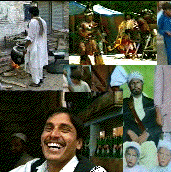
The Centre for Social Anthropology and Computing (CSAC) aims to advance 'ordinary' anthropology through the exploration, development and application of computational approaches to research problems across the range of anthropology including the humanities, social sciences and sciences. CSAC is presently part of HRAF Advanced Research Centres (hrafARC), affiliated with the Human Relations Area Files, Yale University.
Projects
Current Core Projects
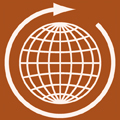

iKLEWS
iKLEWS:
iKLEWS (Infrastructure for Knowledge Linkages from Ethnography of World Societies) is a HRAF project funded by the National Science Foundation. iKLEWS will create semantic infrastructure and associated computer services for a growing textual database (eHRAF World Cultures), presently with roughly 750,000 pages from 6,500 ethnographic documents covering 330 world societies over time. The basic goal is to greatly expand the value of eHRAF World Cultures to users who seek to understand the range of possibilities for human understanding, knowledge, belief and behaviour with respect to real-world problems we face today, such as: climate change; violence; disasters; epidemics; hunger; and war. Understanding how and why cultures vary in the range of possible outcomes in similar circumstances is critical to improving policy, applied science, and basic scientific understandings of the human condition. Seeing how others have addressed issues can help us find solutions we might not find otherwise. This is extremely valuable in understanding an increasingly globalized world. It can be used to explore the relationship between human evolution and human behavior. Although the current web version of eHRAF World Cultures is very fast at retrieving relevant ethnography, fundamentally it uses the same method as the original paper files founded in 1949, just a lot faster. There are no aids to analyzing the material once found; the user has to read the results of their search and apply their own methods. This project will begin to fill this gap so that modern methods of working with text can be applied by developing an extensible framework that deploys tools for analysis as well as greatly improving search capability. This will be available as a services framework, with interfaces for researchers ranging from beginner to advanced.of ethnography, each annotated by HRAF analysts to greatly increase the capacity to find relevant ethnographic information across a range of cultures. [More]
PolySocial Reality - PoSR
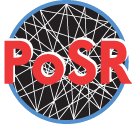 Polysocial Reality - Mobile communications and human/machine networks
Polysocial Reality - Mobile communications and human/machine networks
PIs: Sally Applin and Michael Fischer. Funder: small grants
PolySocial Reality (PoSR) (Applin and Fischer 2011) is a model that describes the condition of information flowing in a system in multiple ways at multiple times and how people, software, and machines act on it (or not). PoSR examines all messages: Human/Human, Human/Machine, Machine/Machine. People and things act on information at the same (synchronous) or different (asynchronous) times. This creates different outcomes such as a lack of understanding, or partial understanding which can lead to more messages needing to be created or messages not being received as well as sociability though mediated devices at the expense of the local locale. These conditions can lead to a lack of cooperation. We are dependent on each other to maintain many complex systems for food, energy, water, etc.. We need to communicate well in order to cooperate and survive. PoSR looks at the aggregate of all of the information in the messaging system, digital and analog.
Formally, PolySocial Reality (PoSR) describes the multiple, sometimes overlapping, network transaction spaces that people traverse synchronously and asynchronously with others to maintain and use social relationships and systems; a conceptual model for the global interaction context within which people experience social interactions whether immediate or mediated by technology. PoSR defines relations across the aggregate of all the experienced ‘locations’ and ‘communications’ of and between all individual people, people/machines and machines/machines (as well as animals/people and animals/machines) in multiple networks and/or locales at the same or different times. PoSR is based upon the core concept that dynamic relational structures emerge from the aggregate of multiplexed asynchronous or synchronous data creations of all individuals within the domain of networked, non-networked, and/or local experiences. [More]
External Core Collaborations
Pilsen Garbage Project
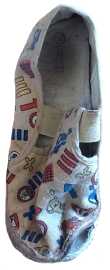 PIs: Daniel Sosna, Pilsen, CZ, and David Henig, CSAC, Kent. Funder: Czech Science Foundation
PIs: Daniel Sosna, Pilsen, CZ, and David Henig, CSAC, Kent. Funder: Czech Science Foundation
We are interested in the relationship between humans and their waste. We see great potential in studies of various kinds of waste in its social context to elucidate who we - humans - really are. Humans produce waste through their action. In doing so, they follow unconscious patterns of thinking and doing embedded in habitual practices. They can also improvize and intentionally shape their practices related to rubbish to conceal things that should not bee seen or signal to others ideologies built upon the ideas of reuse and sustainability.
In addition to the enrichment of theoretical perspectives on waste, we attempt to develop efficient and reliable methodological tools for data collection, analysis, and interpretation. Therefore, we attempt to apply various approaches including detailed quantitative and qualitative analyses of garbage, ethnography, questionaire surveys, and spatial analyses to triangulate our findings. Also, we experiment with technological innovations such as direct digitization of textual, visual, and audio data in the field using tablet computers and relational databases, software for qualitative data analysis, and geographic information systems for spatial analysis. More
Knowledge Elicitation Tools (KNeTs)
PIs: Sukaina Bharwani, Stockholm Environment Institute, Michael Fischer, CSAC, Kent. Funder: Stockholm Environment Institute
Knowledge elicitation tools (KnETs) is a set of methods and tools developed by the authors since 2000, the basis of a number of resource management and livelihood research projects of the Stockholm Environment Institute. KnETs includes baseline ethnographic identification of local classifications, interactive scenario based data collection, induction of decision rules though pattern extraction, participatory review of these rules creating an 'expert system', and agent-based models employing these production rules, We describe through brief case studies how KnETs and scenario-based interviewing are used to produce ethnographically sound models relevant to the community while remaining epistemologically compatible with other frameworks. These models provide a much richer and grounded description of the social and cultural components of social-ecological systems, allowing more nuanced analyses and clearer insight into their complexity, as well as a more resilient and robust base for forecasting. . [More]
Kinship Algebra Modeller (KAM)
PIs: Dwight Read, UCLA and Michael Fischer, CSAC, Kent. Funders: ESRC, EPSRC, MRC, NSF
 Kinship provides a link between biologically constituted and culturally constituted societies. Although we argue that kinship terminologies may well interface biology and culture, using formal and computational methods we refute the assumption that kinship is based on genealogical definitions of kin terms as the primitives of kinship systems. Rather, genealogical definitions of kin terms are entirely predictable when the kinship terminology is viewed instead as a system of cultural symbols.
Kinship provides a link between biologically constituted and culturally constituted societies. Although we argue that kinship terminologies may well interface biology and culture, using formal and computational methods we refute the assumption that kinship is based on genealogical definitions of kin terms as the primitives of kinship systems. Rather, genealogical definitions of kin terms are entirely predictable when the kinship terminology is viewed instead as a system of cultural symbols.
Kinship terminologies have an underlying logic that makes it possible for a terminology to be commonly shared among culture bearers despite imperfect learning and imperfect transmission of “kinship knowledge”. Though there has been over a century of intensive study of kinship systems and marriage rules, this work has not adequately addressed the nature and form of the underlying conceptual/cultural constructs that underlie the way cultural kinship constructs the other as having a symbolically defined relationship to self.
The Kinship Algebra Expert System (KAES), helps to demonstrate this. KAES is a computer program that begins with informant information about relationships among kin terms and produces an underlying grammar for the kin terms as a system. We will further present results from a multi-agent simulation models to indicate an account for why kinship terminologies might tend to be describable by algebras, and why the resulting algebras are similar, even for apparently quite different kinship terminologies. We will also present some implications of these results for understanding the origins and propagation of human culture. [More]
International Collaborative Research
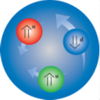
CoSSci Supercomputer Gateway
The Complex Social Science Supercomputer Gateway has developed a Galaxy gateway site at UCI is connected to Trestles and to a Virtual Machine at UCI with analytic R software. Some fundamental research questions have already been addressed by some of the 30 chapter authors of the Wiley Companion to Cross-Cultural Research and Conference presentations of the core researchers (White, Eff, Dow, Oztan) have spread the word about the new statistical modeling and datasets now widely available through the CoSSci project. In addition to updated analytic software contributions from Fischer's group at CSAC, University of Kent (UK), Co-PI Fischer will provide the resource services framework for people to integrate summaries of ethnographic information relevant to coded data variables and provide modeling examples and discussions of statistical inferences and problems of interpretation and validation. [More]

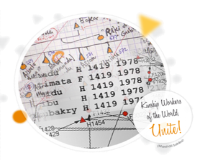
Kinsources
Kinsources is an open and interactive platform to archive, share, analyze and compare kinship data used in scientific research. Kinsources is not just another genealogy website, but a peer-reviewed repository designed for comparative and collaborative research. The aim of Kinsources is to provide kinship studies with a large and solid empirical base.Kinsources combines the functionality of communal data repository with a toolbox providing researchers with advanced software for analyzing kinship data. Kinsources seeks to understand the interaction between genealogy, terminology and space in the emergence of kinship structures. Hosted by the TGIR HumaNum, the platform ensures both security and free access to the scientific data is validated by the research community.
Started by Mike Fischer of the Center for Social Anthropology and Computing at the University of Kent (CSAC), Kinsources is developed within a research project funded by the French National Research Agency (ANR), involving research institutes University of Nanterre, the School for Advanced Studies in the Social Sciences (EHESS) and the Centre National de Recherche Scientifique (CNRS), as well as CSAC at the University of Kent (UKC), the University of California at Irvine (UCI), the University of California at Los Angeles (UCLA) and the Max Planck Institute for Psycholinguistics (MPI) at Nijmegen, Netherlands. [More]

Human Relations Area Files - eHRAF
Preserving and Making Data Accessible Digitally
Founded in 1949 at Yale University, the Human Relations Area Files, Inc. (HRAF) is an internationally recognized organization in the field of cultural anthropology. HRAF's mission is to encourage and facilitate the cross-cultural study of human culture, society, and behavior in the past and present. Data collected in the field form the backbone of published research. Data is often lost as scholars retire, become ill, or die. There is an assumption that because data are now “born digital” we have improved the situation. This is not the case.
CSAC researchers, most recently Fischer, Henig, Bagg and Barone, have been working on these issues for almost three decades, beginning with Fischer 's publication online of data and analytic software to work with it in 1986. From 2009 CSAC's Fischer and Barone have been working with HRAF to develop the capacity to preserve, increase reusability of data and to make it publicly available. We are developing a services platform to greatly expand both research functionality and broader access to the vast collection of digital ethnographies available in the HRAF databases, about 1,000,000 pages of ethnography, each annotated by HRAF analysts to greatly increase the capacity to find relevant ethnographic information across a range of cultures. [More]

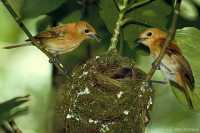
Cook Islands Biodiversity & Ethnobiology
This is a collaborative project between CSAC, the Cook Islands Natural Heritage Trust and community groups on the islands of the Cooks. Cook Islands Natural Heritage Trust is a government agency responsible for collecting traditional and scientific information on local plants and animals and making this information available to decision makers and the general public. The project aims to support the use of scientific biodiversity data and local ethno-ecological knowledge to improve adaptive strategies for biodiversity management, reporting and monitoring in the Cook Islands in the context of significant demographic and climate change and subsequent ecosystem change. The project has four basic components. Effective contribution in support of the implementation of the objectives of the Convention on Biological Diversity (CBD), the Convention on Trade in Endangered Species (CITES), and the Convention on the Conservation of Migratory Species (CMS), as well as related targets set by countries rich in biodiversity but constrained in resources. [More]
Former Projects
Legal Innovation in PNG
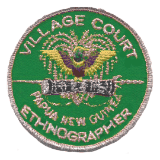 PIs: Melissa Demian, Michael Fischer and Fiona Hukula. Funder:ESRC
PIs: Melissa Demian, Michael Fischer and Fiona Hukula. Funder:ESRC
Papua New Guinea's system of Village Courts, initiated at the country's independence in 1975, provide a valuable test case in the integration of less formal, local-level adjudication forums within a formal legal structure. The courts were designed to provide rural communities with access to the legal system, and also to provide this access in a form that would suit local sensibilities, for instance by placing less emphasis on a distinction between civil and criminal cases.
That these have adapted to different needs in different parts of this extremely diverse country is an indication that the flexibility of the Village Courts is something to be examined as an indication that Papua New Guinea's legal system is one in which the delivery of justice is not always designed in a top-down fashion from the centre, but can and does develop organically at the grassroots level.
The project will draw on the skills of two anthropologists with longstanding research interests in the operation of Papua New Guinea's legal system, with the assistance of students from the University of Papua New Guinea who will contribute knowledge of local languages (the country boasts some 800 languages) as well as local variations in social organisation and cultural values.
From the reconciliation commissions that have sprung up in the wake of conflicts around the world, to the adoption of restorative justice alternatives in the British criminal justice system, the operation and development of informal courts in one part of the world has profound implications for how courts and other forms of justice delivery can develop elsewhere. [More]
Adaptive Agency and IK in Central Asia
Adaptive Agency and Local Knowledge in Central Asia: environmental (un)sustainability and social (in)stability
PI: David Henig. Funder: Wenner Gren
Proposals in progress: David Henig and Michael Fischer
The research is sited within pastoral Central Asian Pamir mountain societies in Tajikistan and Kyrgyzstan that have undergone tremendous changes and diversification in the the 20th and 21st centuries in response to socio-economic breakdowns and macro-societal transformations following the collapse of the Soviet Union and, more recently, climatic and environmental changes.
We examine how vulnerable Central Asian pastoral communities are addressing day-to-day and longer term requirements through adaptive agency. The aim of this research is to address the fundamental question of how people employ cultural knowledge in adapting to a changing world, especially through active agency, interventions and inventions, not just passive adaptive responses.We will advance our capacity to describe, conceptualise and understand the limits of adaptive agency where the robustness (cultural continuity) and resilience (cultural change) of cultural knowledge are central to managing the complex interplay of social, material and environmental processes that affect both livelihood and biodiversity.
In addition to more conventional methods, to collect the data required we will employ more novel methods including interactive elicitation of judgements using Knowledge Elicitation Tools (KNeTs), fieldnotes tagged w/Ethnographic Contexts Ontology (ECXO) for use in Semantic Inferencing Fieldnote Tools (SIFT) and hyperlinked georeferenced and geotagged media, including fieldnotes, images, audio and video. [More]
Data-minding the Planet - iTrade
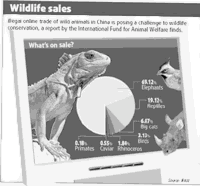 iTrade Wildlife - software to detect illegal wildlife sales
iTrade Wildlife - software to detect illegal wildlife sales
PIs: Dave Roberts and Michael Fischer. Funder: NERC
The illegal wildlife trade is fourth only to narcotics, human and counterfeiting in terms of transnational trafficking, and estimated to be worth $19-26.5billion pa. The UN recognised by consensus that environmental crime as an emerging form of transnational organised crime requiring a greater response by governments. The internet is a growing medium through which wildlife is being bought and sold due to the feeling of anonymity.
At the University of Kent, we have developed software, 'iTrade', that automatically identifies illegally traded items on websites with about 90% accuracy, capable of generating new reports every 10mins. Typically the identification of cybercrime of this form involves law enforcement officers simply going through thousands of web pages by hand. iTrade goes through all these pages automatically, weighting them as more or less likely to be illegal, and presenting the most likely pages in a feed so that officers can quickly click through these to assess investigation potential, saving officers a significant amount of time. 
We will develop and deploy services based on present capabilities that supply feeds of webpages rich in illegal entries that can be deployed in a variety of forms, including RSS/Atom web feeds, email, and one or more web or tablet based applications, for use by public bodies with responsibilities to enforce including the National Wildlife Crime Unit of the Police and the UK Border Force, foreign law enforcement agencies, or external private parties who operate on behalf of law enforcement organisations. [More]
Information about CSAC's Recent Grants
Resources for Anthropology and Computing
CSAC thanks the following organisations for their support of our research![]()
![]()
![]()
![]()
![]()


![]()

![]()
end